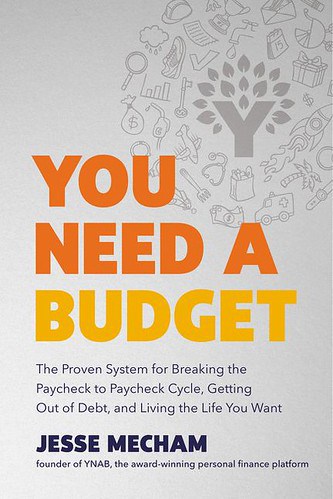If you’re over 30, You Should Do These 5 Things

What am I doing with my money? She asks, while having a mental breakdown
You are probably like any other twenty-something person in the world. You’re aware that financial savvy is not always common amongst your peers. You feel normal because most of your friends are also in the same situation. Like you, they are struggling to get rid of debt from student loans and live paycheck to paycheque. They also have to bear the cost of a lifestyle that is far beyond their income.
You probably have no idea what you feel.
You Should:
A) Do you feel resentful toward a society which preaches that student loans are beneficial to your future?
B) Show spite to the government for allowing wages to stagnate?
C) Be depressed because you won’t be able afford the lifestyle your parents enjoyed at your age?
You can either accept that you have to do something to improve your financial situation or take it into your own hands.
We already know in our hearts that the answer to this question is yes. We welcome to the millennial lifestyle. This is the generation that has been pushed out of housing markets, and who are unable to achieve financial security early in life.
WHAT DO WE DO WITH OUR MONEY?!
In 2019, it’s impossible not to upgrade your lifestyle. In 2019, there are a lot of new gadgets, events, and travel opportunities. But that doesn’t necessarily mean your retirement fund is going to wait until you catch up. The bank won’t put off time so you can get into debt to go on a Spring Break trip to Cabo. We’re all going to Sayulita, so I suppose we should go. Thank you, Bachelor in Paradise.
We are generally doing well. A survey revealed that 7 out of 10 people believe they are savers, as opposed to those who spend. Only 15% of us do not have any financial goals. The majority of millennials do not plan to begin saving for retirement before they are 36 years old. That’s something I never expected to see.
WHAT SHOULD WE DO WITH OUR MONEY?!
Here are a few suggestions for ways to improve your financial performance without going too far out of your comfort zone.
1. Form good money habits
Alyssa , you might be thinking: Wow, what a life-changing tip! I know. It’s too simple to mention. By saving consistently, creating an easy-to-follow budget, and being aware of your incomes and expenses, it is possible to drastically change your habits. After you have changed your habits, you can start working towards goals that will actually produce results.
2. You don’t have to start living your dream life from the first day.
It is important to take the time to plan out all aspects of your life which make you feel comfortable and happy. It’s fine if your lifestyle demands a higher clothing budget or grocery budget. It’s important to find a way to adjust your financial priorities so that they better fit your ideal lifestyle. This lifestyle will not be yours the moment you put it on paper. Understanding your needs is the first step to creating an income that matches them.
3. Create a realistic timetable and determine your earning potential.
Salary indicators in your field of work, your industry, and your company can give you an idea of your earning potential. What is your earning potential and can the company grow? After you have found those numbers, set realistic goals to achieve them.
4. Divide your wealth among multiple accounts
Assume that you already have a checking and savings account. It seems good, right? Wrong. It’s a good idea to save money in several accounts once you earn a regular income. You’ll have a better idea of your progress towards each financial goal. It’s the same with investments. It’s fine to keep your retirement funds in one account, but dividing your investments among a few different funds can ( slightly ) protect you against market fluctuations and help you achieve your long-term financial goal with less risk.
5. I have said it before and I will say it again: Emergency fund
What happens in the event of a mass layoff? What happens if a recreational basketball injury leaves you unable to walk? What happens when a member of your family falls ill suddenly and you are responsible for their care? These scenarios, although grim, are part of everyday life. Financial pitfalls are often the uncontrollable aspects of our daily lives. You’ll be prepared for any emergency by saving enough money to cover the minimum of 3 to 6 month of living expenses. This includes unexpected bills.
6. Prepare yourself for the unexpected
It’s time to protect yourself when things go wrong. Renting? Renting? Travel regularly? Insurance is available for those who travel frequently. Make sure you are covered for all aspects of your life. You’ll be able to find the best policy for you after you have done your research. Always read the fine print.
7. You should take your hobby seriously
It’s perfectly fine to want to spend your money on spin classes, to travel to new countries every year or to buy the latest iPhone when it is released. All of us have wants and expensive hobbies. We also need to live life. If you plan to spend the money, regardless of your finances, you should make sure your budget can accommodate these costs. Include these costs in your budget. Budgeting for me is no longer an Excel spreadsheet. I have a budget that is flexible and doesn’t limit me too much. This is because I know what my income and fixed expenses are, and that I have a savings goal. My “hobbies” end up costing a lot more money than I would like to admit.
8. Start saving now for your retirement ( please for the love God).
Now is the perfect time to start. “I will wait until I am in a “securer” position,” was something I told myself. In reality, my excuses were just a way to avoid having to give up a part of my salary. The joke was ultimately on me. In the end, buying time cost me more. To make up for the lost time, you will need to increase your monthly contribution if you wait too long. Start saving money each month in an RRSP or TFSA. You’ll be grateful to me later.
PAYING YOUR DEBT WILL FINALLY COME TO A END
With student loans and consumer debt, it’s very difficult to complete post-secondary education. I’ve been through it. You can forget to look forward to the end of this tough time when you are so focused on paying down your debt. You stop planning for the future and stop preparing when you forget. These steps can help. Plan your life and what you want to achieve with the money you have. When you begin to care about your finances early enough, anything is possible.










+ There are no comments
Add yours